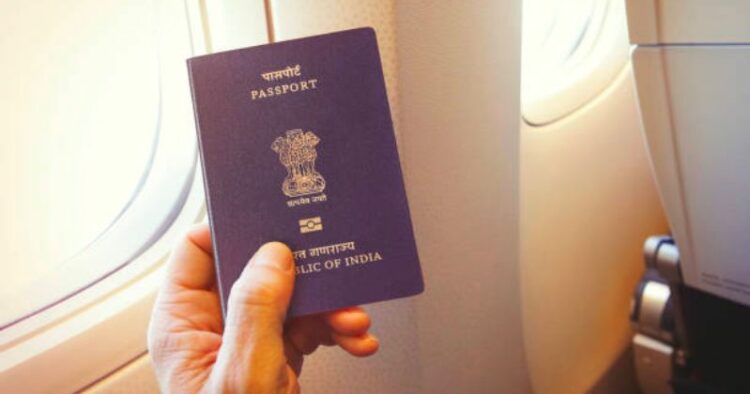The strength of the Indian passport has moved up from 87th rank in 2022 to 80th rank in 2023, providing its holders visa-free access to 57 countries as per the Henley Passport Index. The index ranks passports based on the number of destinations their holders can access without a prior visa, largely based on data from the International Air Transport Association (IATA).
Meanwhile, Singapore has knocked Japan off the top spot on the Henley Passport Index for the first time in five years, with the latter ranking 3rd on the list now. Singapore’s passport has become the most powerful passport in the world with citizens able to travel to 192 destinations out of 227 total destinations without a visa.
With visa-free access to 190 countries, Germany, Italy and Spain bagged the 2nd rank on the index. Meanwhile, seven countries – Japan, Austria, Finland, France, Luxembourg, South Korea, and Sweden – are at the 3rd rank with access to 189 destinations without a prior visa.
The UK has finally turned the corner after a six-year decline, jumping up two places on the latest ranking to 4th place — a position it last held in 2017. The US, on the other hand, continues its now decade-long slide down the index, plummeting a further two places to the 8th spot with access to as many as 184 destinations visa-free. Both the UK and the US jointly held 1st place on the index nearly 10 years ago in 2014 but have been on a downward trajectory ever since.
Of the countries sitting in the ‘Top 10’, the US has seen the smallest increase in its score on the Henley Passport Index over the past decade, securing visa-free access to just 12 additional destinations between 2013 and 2023. Singapore, by comparison, has increased its score by 25, pushing it five places up the ranking over the past 10 years to the number one spot.
Afghanistan remains at the bottom of the Index, with a visa-free access of just 27, followed by Iraq (29), and Syria (30) — the three weakest passports in the world.
The general trend over the history of the 18-year-old ranking has been towards greater travel freedom, with the average number of destinations travellers are able to access visa-free nearly doubling from 58 in 2006 to 109 in 2023.
However, the global mobility gap between those at the top and bottom of the index is now wider than it has ever been, with top-ranked Singapore able to access 165 more destinations visa-free than Afghanistan.
Christian H Kaelin, Chairman of Henley and Partners and the inventor of the passport index concept, said only eight countries worldwide have less visa-free access today than they did a decade ago while others have been more successful in securing greater travel freedom for their citizens.
“The UAE has added an impressive 107 destinations to its visa-free score since 2013, resulting in a massive leap of 44 places in the ranking over the past 10 years from 56th to 12th position. This is almost double the next biggest climber, Colombia, which has enjoyed a jump of 28 places in the ranking to sit in 37th spot,” Kaelin added.
Ukraine and China are also among the Top 10 countries with the most improved rankings over the past decade. Coming to the ‘most open’ countries, the ‘Top 20’ are all small island nations or African states, except for Cambodia.
There are 12 completely open countries that offer visa-free or visa-on-arrival entry to all 198 passports in the world (not counting their own) — Burundi, Comoro Islands, Djibouti, Guinea-Bissau, Maldives, Micronesia, Mozambique, Rwanda, Samoa, Seychelles, Timor-Leste, and Tuvalu.
At the bottom of the Henley Openness Index, four countries score zero, permitting no visa-free access for any passport — Afghanistan, North Korea, Papua New Guinea, and Turkmenistan. They are followed by five countries that provide visa-free access to fewer than five other nationalities — Libya, Bhutan, Eritrea, Equatorial Guinea, and India, the report said.
[with inputs from ANI]


















Comments